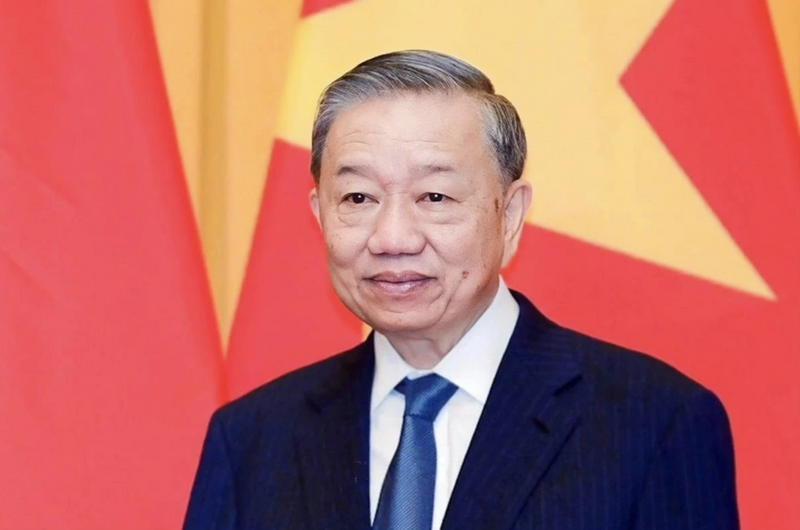
General Secretary To Lam to attend inaugural Gaza Peace Council meeting in US
19:05 | 23/03/2025 14:58 | 17/02/2026News and Events
Draft law aligned with six key policies approved by the Government
The draft law consists of 8 chapters and 50 articles, closely following six major policies already approved by the Government. Its contents include regulations on types of e-commerce platforms; responsibilities of participating entities; management of cross-border e-commerce; regulation of livestream sales and affiliate marketing; provisions for social networks with e-commerce functions; and mechanisms for developing green and sustainable e-commerce.
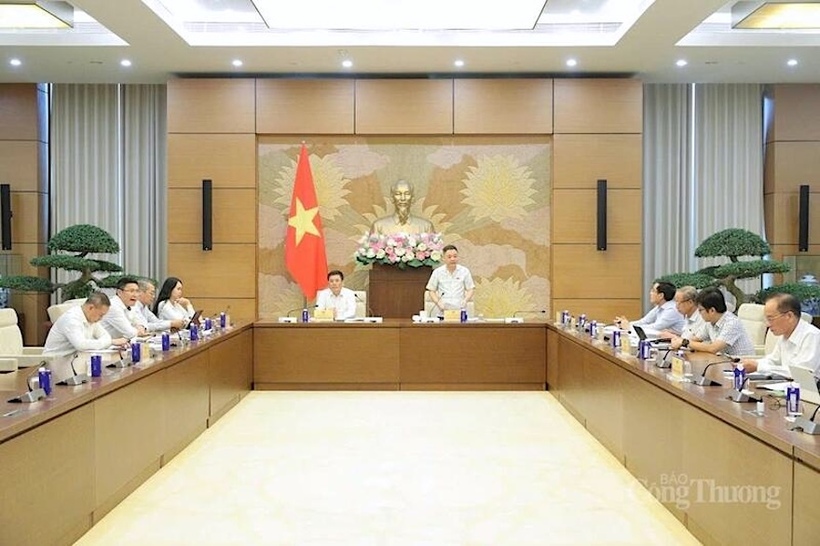
Overview of the preliminary review session of the draft Law on E-commerce.
Opening the session, Nguyen Ngoc Bao, Deputy Chairman of the Economic and Financial Committee, said that as assigned by the National Assembly Standing Committee, the Committee has gathered opinions from the Ethnic Council, other Committees of the National Assembly, the Vietnam Chamber of Commerce and Industry (VCCI), trade associations, and several e-commerce businesses. “These opinions have been compiled into the dossier, serving as an important basis for the review,” he noted.
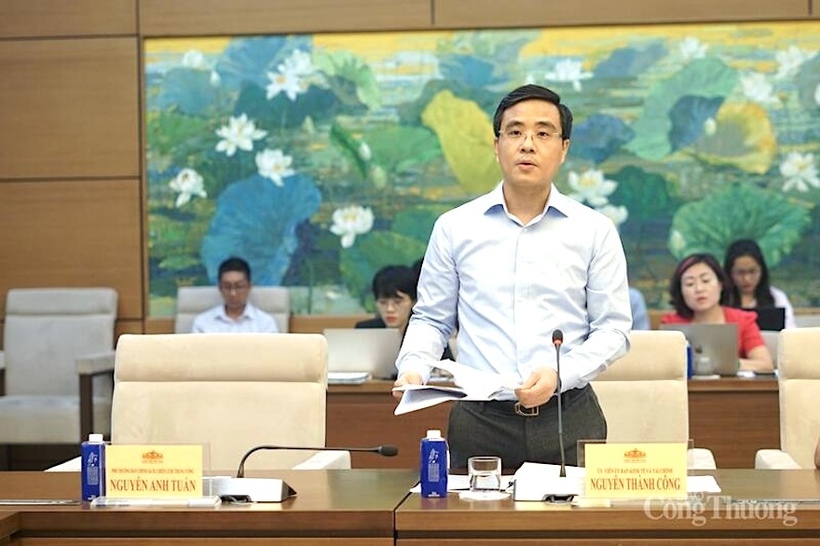
Mr. Nguyen Thanh Cong - representative of the auditing agency suggested contents for comments.
Mr. Nguyen Thanh Cong, representing the reviewing body, suggested discussion topics such as: the necessity of issuing the law; its constitutionality, legality, and consistency; compatibility with international treaties; administrative procedures and implementation; legislative structure and technique; as well as specific issues like regulation of e-commerce platforms, business activities on social networks, integrated service platforms, livestream sales, and affiliate marketing models that are rapidly evolving and complex, requiring clear legal frameworks.
Rapid e-commerce growth demands legal framework
Representing the drafting agency, Le Hoang Oanh, Director General of the E-Commerce and Digital Economy Department under the Ministry of Industry and Trade, noted that Vietnam’s e-commerce has been expanding at 20-25% annually, now accounting for about 10% of total retail sales. However, regulation has so far been based only on two decrees, insufficient for current management needs.
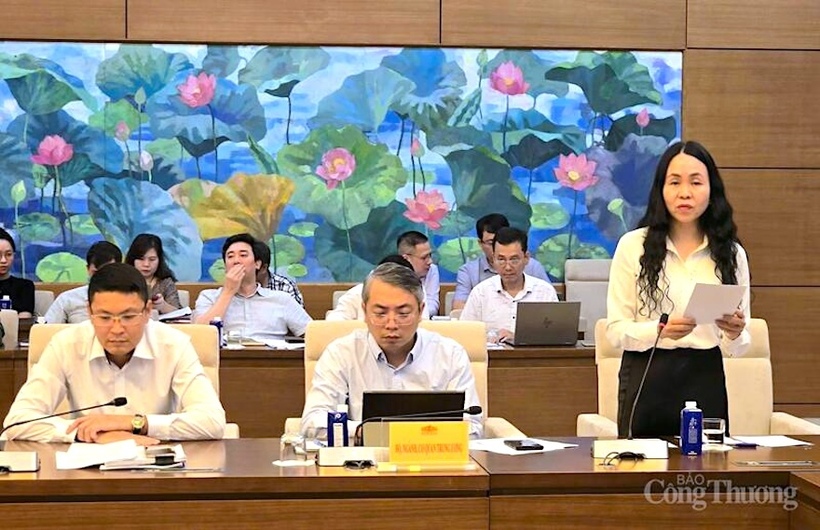
Ms. Le Hoang Oanh - Director of the Department of E-commerce and Digital Economy spoke.
She emphasized that new business models such as livestream sales and affiliate marketing pose challenges in tax administration, consumer protection, personal data protection, and control of counterfeit or banned goods. Cross-border e-commerce also reveals gaps in quality control, domestic production protection, and consumer rights. In addition, requirements for green and sustainable development, along with decentralization to localities, demand urgent codification.
Internationally, countries such as China, South Korea, Japan, and the EU have enacted their own e-commerce laws to protect consumers and recognize the legal value of electronic data. Vietnam also needs such a law to align with international commitments and accelerate digital transformation.
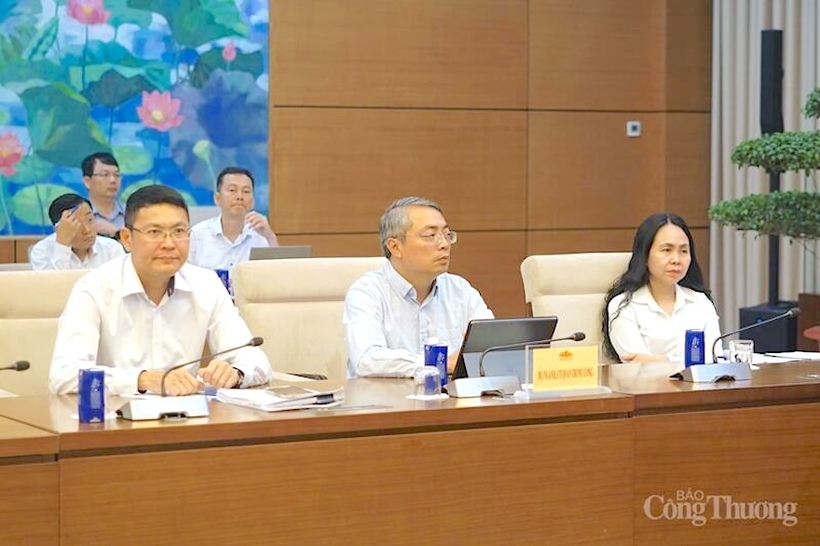
Representative of the Drafting Committee of the Law Project.
Key highlights of the draft law include:
First, defining legal positions of e-commerce models, enhancing platform responsibility in product review and consumer protection.
Second, expanding obligations for social networks and integrated service platforms to ensure fair competition.
Third, establishing seller identification requirements, ensuring transparency.
Fourth, binding obligations for livestream sellers and affiliate marketers.
Fifth, requiring foreign platforms to have a legal entity or representative in Vietnam for tax compliance and consumer protection.
Sixth, adding obligations for service providers supporting e-commerce and mechanisms for rapid response to violations.
Seventh, regulating electronic contracts, including automated ones, to ensure clear responsibilities.
Eighth, adding policies to support e-commerce in remote areas, vulnerable groups, and SMEs.
The draft reduces administrative procedures from 24 to 18, cutting 40% compared with the current framework, with all new procedures designed to be fully online and fee-free.
Practical and legal opinions will be fully accepted.
Minister of Industry and Trade Nguyen Hong Dien thanked delegates for their contributions, stressing that:
Firstly, valid and practical recommendations will be incorporated into the draft.
Secondly, e-commerce is booming at around 25% annual growth, ranking Vietnam among the top 20 globally, but management has relied only on Decrees 52 and 85 clearly insufficient. A law is urgently needed.
Thirdly, perfection is impossible; even advanced countries face challenges in data governance and cybersecurity. Vietnam must legislate while adapting to new realities, protecting national interests and consumers.
Fourthly, e-commerce covers both goods and services; the law must clearly define its scope to avoid overlap with specialized laws. Initially, existing laws apply where available; otherwise, the E-Commerce Law will apply.
Fifthly, all parties platforms, sellers, logistics providers must bear legal responsibility. Platforms, as “market hosts,” cannot shirk accountability for violations.
Sixthly, the law must include inter-agency coordination, especially in science, technology, telecommunications, and data management.
Finally, Minister Nguyen Hong Dien reaffirmed that all constructive, lawful, and practical inputs will be incorporated. “This is our political and legal responsibility before the Party, the State, and the People,” he said.
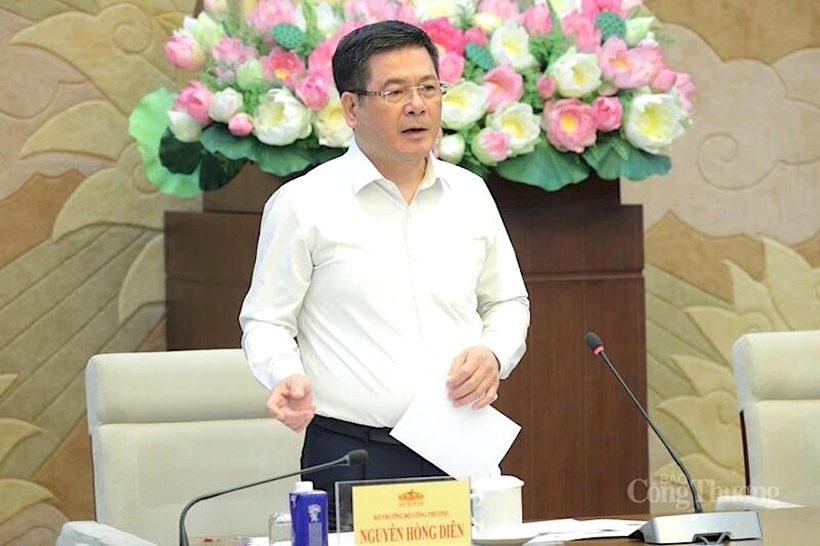
Minister Nguyen Hong Dien clarified the issues raised by delegates.
Concluding the session, Deputy Chairman Nguyen Ngoc Bao noted consensus on the need for the law to both promote e-commerce and ensure sustainability, with responsibility for taxation, counterfeit control, and consumer protection. Delegates also stressed the need to review consistency with existing laws, particularly regarding the scope between goods and services, and to define responsibilities by business model and scale.
The draft E-Commerce Law is expected to be submitted to the National Assembly for approval at its 10th session (October 2025).

19:05 | 23/03/2025 14:58 | 17/02/2026News and Events
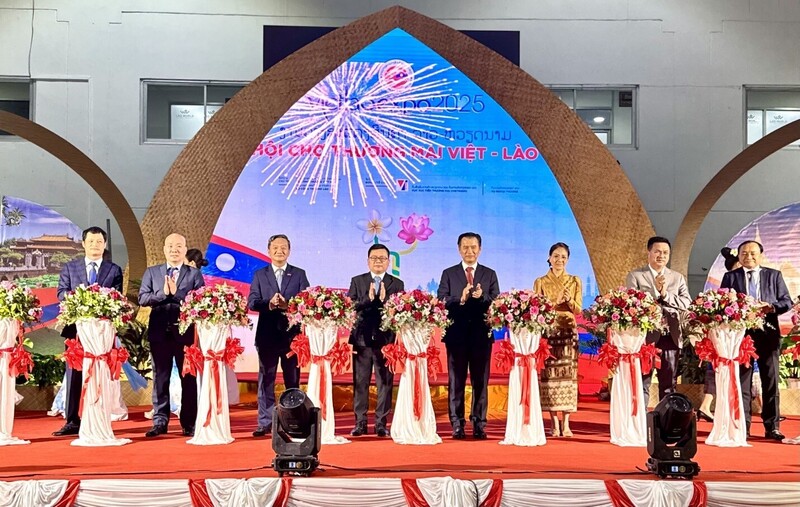
19:05 | 23/03/2025 14:56 | 17/02/2026Trade

19:05 | 23/03/2025 14:55 | 17/02/2026News and Events
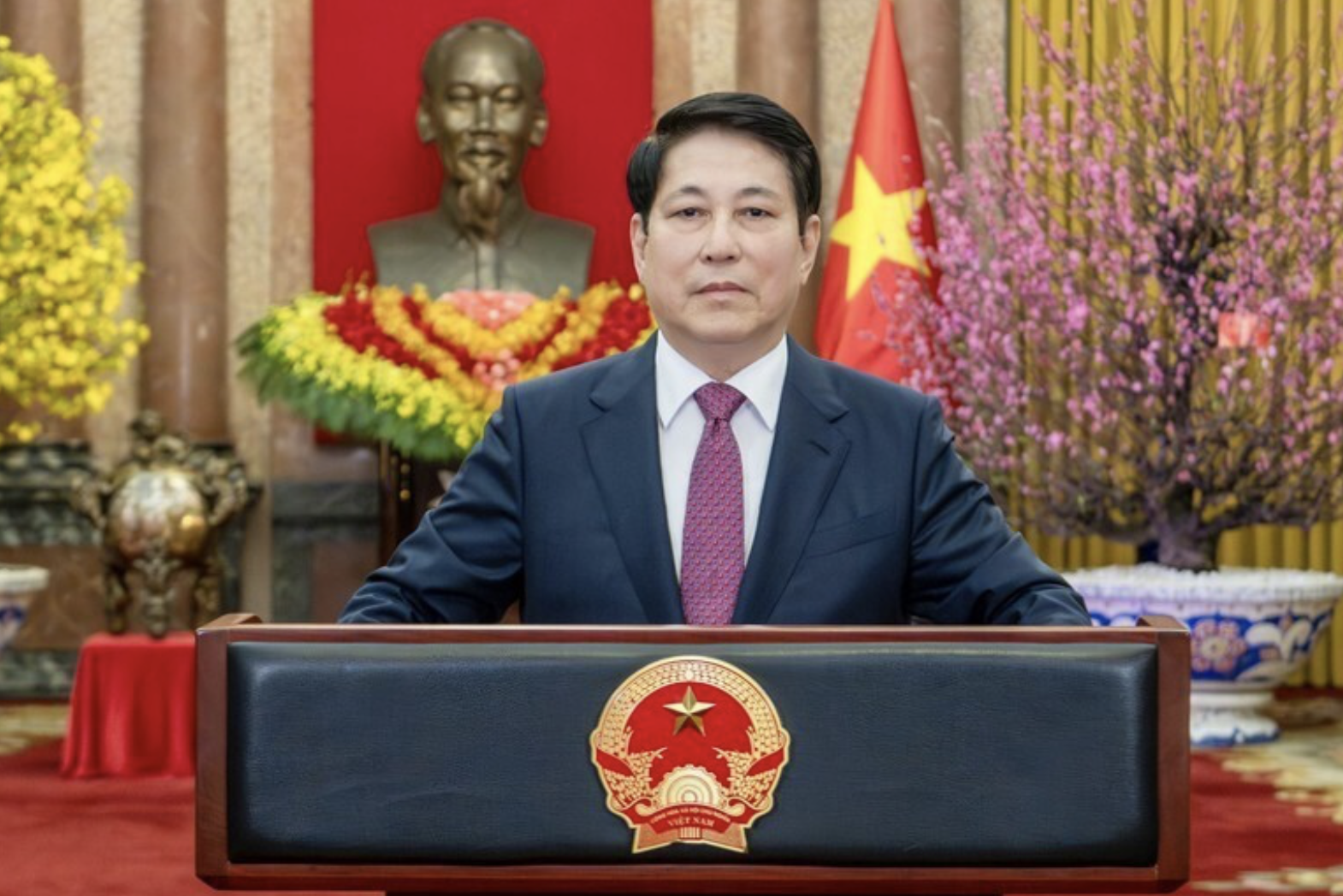
19:05 | 23/03/2025 00:12 | 17/02/2026News and Events

19:05 | 23/03/2025 08:30 | 15/02/2026News and Events